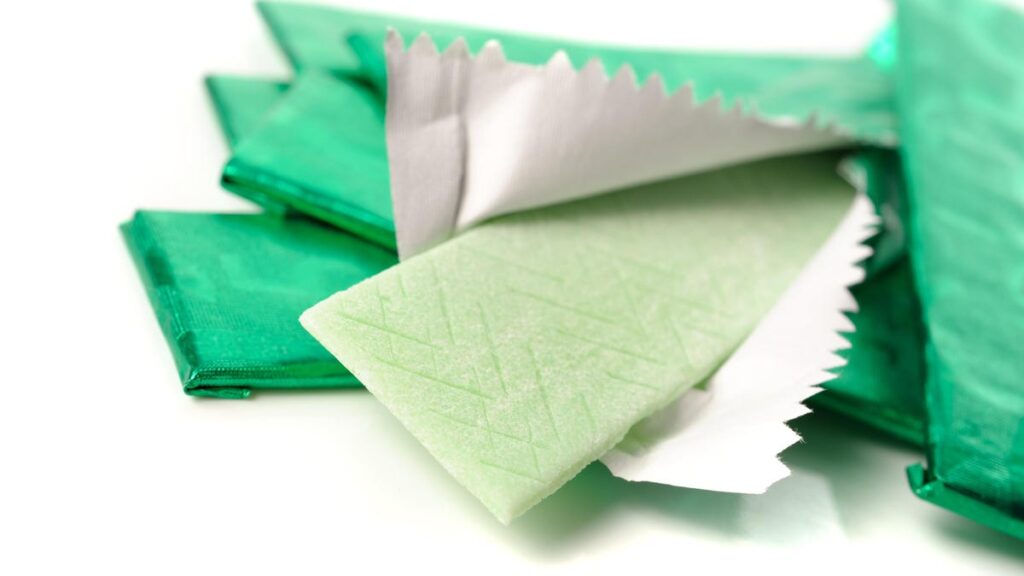If a pack of sugarless gum gives you severe stomach pain, gut bacteria may be to blame. A new study in mice finds a link between the gut microbiome and food intolerance to sorbitol, a common sugar substitute. The findings may even lead to effective treatments for the condition, although more research is needed to confirm this link.
Sorbitol and similar ingredients are Sugar alcohol, also known as polyols. They are derived from sugars such as sucrose but have fewer calories (about half to one-third), which makes them a popular thickener and sweetener. However, sugar alcohols are less sweet, so sugar-free products that contain sugar alcohols often also contain artificial sweeteners. Unlike the latter alternative, many sugar alcohols occur naturally in certain fruits and vegetables.
Despite their value, sugar alcohols have long been known to cause gastrointestinal distress. People don’t usually get sick from small amounts of sorbitol and other polyols in a typical diet, but some of us seem to be particularly sensitive to their presence in food, a condition called polyol intolerance. Researchers at UC Davis and elsewhere say they may have figured out why this happens.
Past studies in mice have shown that disrupting the gut microbiome can temporarily induce polyol intolerance. But these scientists hope to learn more about how the disease becomes chronic in some people. Their previous research found that antibiotic treatment combined with a high-fat diet prolonged the time it took for the microbiota to return to normal. So they wanted to see if this combination could also cause long-term sorbitol intolerance in mice, and it seemed to do so. The researchers then found that the enzymes that break down sorbitol were present in lower than usual levels in the feces of these affected mice—a pattern they also found in the feces of people who are more sensitive to sugar-free foods.
Theoretically, the absence of this enzyme could lead to sorbitol intolerance, so the team next focused on finding gut bacteria that produce this enzyme.By scanning the genetics of the entire gut microbiome, they ultimately identified bacteria that belong to this group Clostridium as a possible candidate. These bacteria are known to be anaerobic, meaning they only grow well in the absence of oxygen.The combination of antibiotics plus a high-fat diet appears to create a higher oxygen environment in the mouse gut, leading to lower Clostridium Then there are the levels of enzymes that break down sorbitol.
To confirm their suspicions, the team introduced another type of bacteria designed to restore low oxygen levels in the mice’s intestines.Once they do this, the level Clostridium Increased levels of the enzyme that breaks down sorbitol also increased; just as importantly, the mice no longer developed symptoms of sorbitol intolerance.
“Our study shows that microbial sorbitol degradation generally protects the host from sorbitol intolerance. However, impaired ability of microorganisms to break down sorbitol can lead to sorbitol intolerance,” said the study’s lead author Dai Dai of the University of California, San Francisco. microbiologist Jee-Yon Lee of the University of Wyss said in an article. statement from college.
The team’s research results, publish An article published Thursday in the journal Cell has not proven that the same chain of events causes chronic sorbitol intolerance in people. But the authors note that existing drugs should be able to produce the same low oxygen levels in the guts of people with the disease. These drugs include mesalazine, which has been used to help treat Crohn’s disease and other inflammatory bowel diseases. Therefore, they believe that this hypothesis can at least be tested in future clinical trials and hopefully lead to a treatment.
“Our study provides a new starting point for approaches to diagnosing, preventing and treating sorbitol intolerance,” co-author Andreas Baumler, a researcher at UC Davis, said in a statement .
